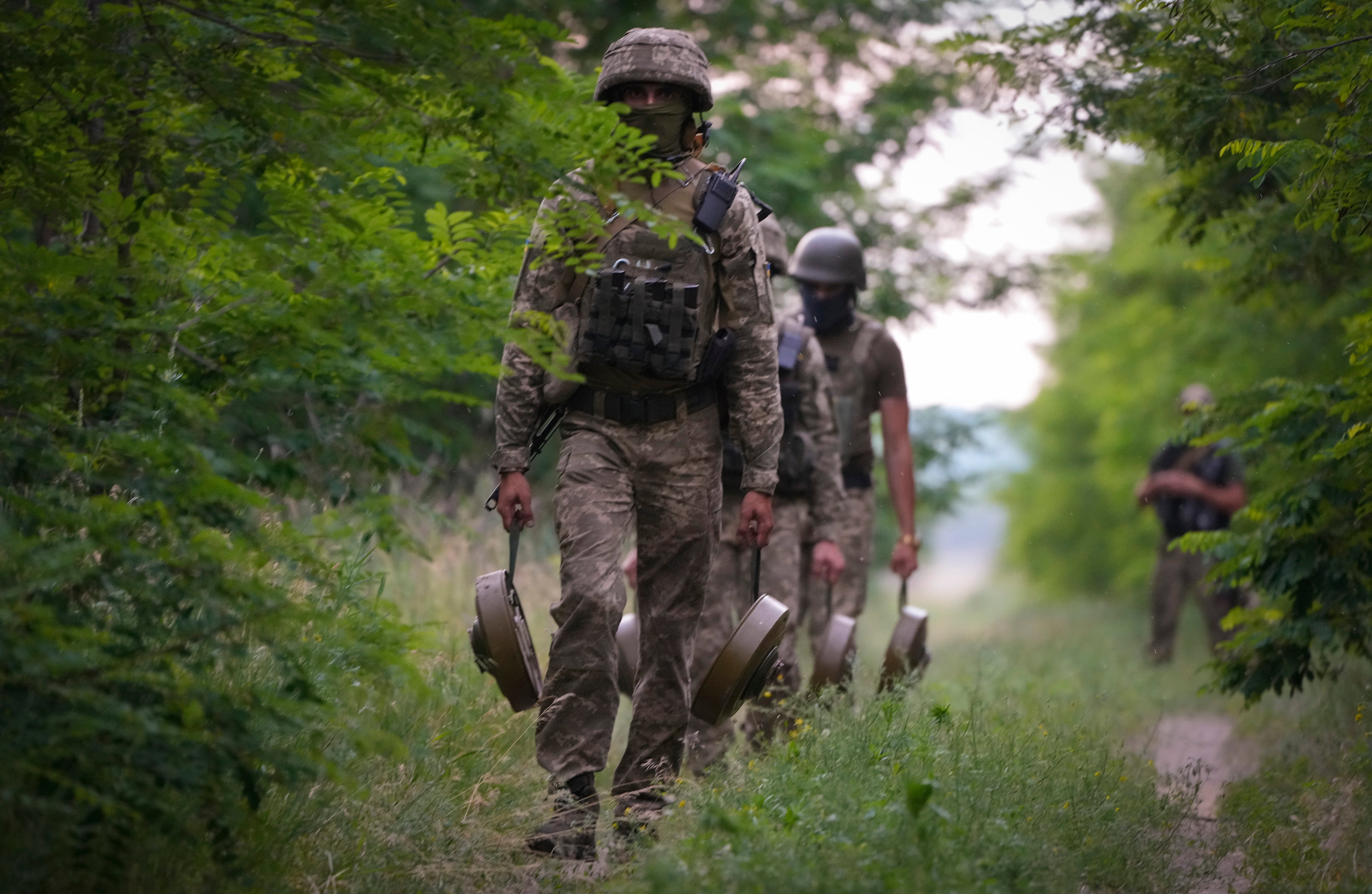Ukraine’s spectacular gains are crucial for the security of Europe
Of course, this does not mean that Ukraine is guaranteed a victory. But they have never seemed closer to one than they have this week, writes Bel Trew


Dwarfed by the death of Queen Elizabeth II, one of the most significant news events to take place this week risks disappearing under the radar despite the massive implications for the safety and security of Europe.
In Ukraine – where the continent’s largest conflict since the Second World War had morphed into a brutal and seemingly hopeless war of attrition – the Ukrainian military appeared this week to spectacularly break that stalemate in a surprise counteroffensive in the northeast.
All eyes had been on Ukraine’s efforts to recapture the whole of the southern region of Kherson, which it seems may have been a deliberate disinformation campaign to distract Russia from Kyiv’s plans for Kharkiv, a northeastern region along Russia’s borders .
The gains in Kharkiv in the last three days have been dubbed the most significant win for Ukraine since Russia withdrew from around the capital Kyiv in April. It has meant Ukrainian troops are not only taking ground seized since President Putin launched his invasion in February, but could push on areas in Russian-backed hands since 2014.
Ukraine’s rapid advance saw troops enter the key town of Izyum, a major logistics hub for one of Russia’s main campaigns: the months-long assault from the north on the neighbouring Donetsk and Luhansk regions, known collectively as Donbas. Just north of that, soldiers also apparently retook Kupiansk – the sole railway hub supplying Russia’s entire northeast front line, cutting off troops.
The Russian ministry also confirmed the withdrawal of troops from a third key town, Balakliya, just to the west in order to “bolster efforts” on the Donetsk front. Ukrainian forces entered the town on Friday.
In fact, President Zelensky claimed on Saturday night that since his forces renewed their counteroffensive this month, they have managed to liberate 2,000 square kilometres (700 square miles) of territory. That would also mean that Ukraine had doubled its gains in just 24 hours.
While it is hard to independently verify this exactly, Russia’s Defence Ministry did announce at the same time that it was pulling back troops from two areas around Kharkiv. Echoing statements made to justify Russia’s pullback from the Kyiv region earlier in the war, Russian Defense Ministry spokesperson, Igor Konashenkov, said troops would be “regrouped” from the Balakliya and Izyum areas to the eastern Donetsk region “in order to achieve the stated goals of the special military operation to liberate Donbas”.
It has sparked fury at home from even the staunchest supporters of Putin’s invasion. Igor Girkin, a popular Russian commentator who was an early leader of a Moscow-backed uprising in Donetsk in 2014, was brutal in his criticism. On the messaging app Telegram, he savagely called it: “The brilliant (clearly within the framework of the plan and even ahead of schedule) operation to transfer the cities of Izyum, Balakliya and Kupiansk to respected Ukrainian partners.” In a video address, he went as far as to say: “We have already lost, the rest is just a matter of time.”
It comes amid reports that Russia has suffered more dead and wounded in the seven months of invading Ukraine than the Soviet Union suffered during a decade-long war in Afghanistan – at least according to estimates from the United States. It also appears to have also impacted their plans for “Russification” of the areas they have captured.
In all the occupied towns, Russia and the proxies it backs have implemented the use of Russian currency, installed puppet administrations, made securing Russian passports easy and started the process of local referendums on annexation. But in Kherson, as Ukrainian forces have advanced, Moscow-backed local officials have recently said the vote would have to be put off.
The Ukrainians appear to have been able to make these gains with the arrival of a much-needed military upgrade. Since the war began, Ukrainian defence officials have repeatedly spoken to me about Kyiv’s desire to rid itself of Soviet weaponry and instead transition to Nato-standard equipment.
To keep up to speed with all the latest opinions and comment, sign up to our free weekly Voices Dispatches newsletter by clicking here
American-supplied Himars multiple rocket launchers have been crucial to their success and game changers across all the front lines, defence ministry officials have repeatedly told me, saying that this, as well as combined attacks on Russia’s weapons storages and airbases, has meant Moscow is having trouble re-equipping their forces. In a war of artillery attrition, that is a disaster.
Of course, this does not mean that Ukraine is guaranteed a victory. But they have never seemed closer to one than they have this week.
And as Brian Whitmore, a non-resident senior fellow at the Atlantic Council’s Eurasia Center, said, if that happens: “It would be a paradigm-shifting event for European security, on the scale of the events of 1989, when the countries of the old Warsaw Pact liberated themselves from Soviet domination.”
“Ukrainians are fighting not just for their own sovereignty and independence,” he wrote for Foreign Policy, “but also for the second liberation of eastern Europe, finishing the process that began in 1989. The West needs to prepare itself to manage this potential contingency.” It may be a win for us all.






Join our commenting forum
Join thought-provoking conversations, follow other Independent readers and see their replies
Comments